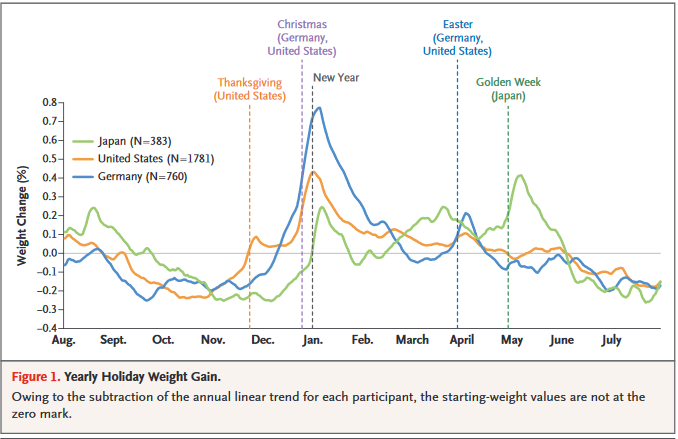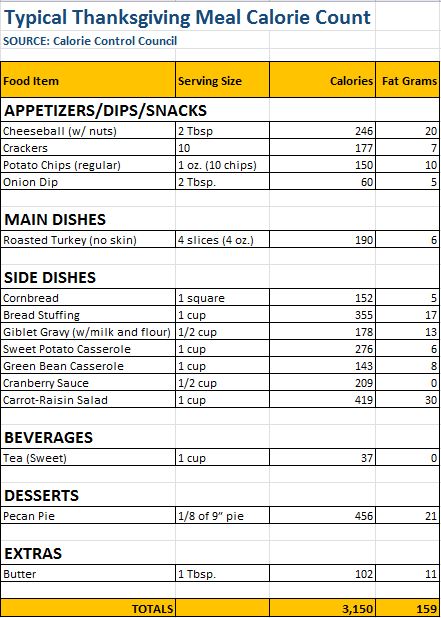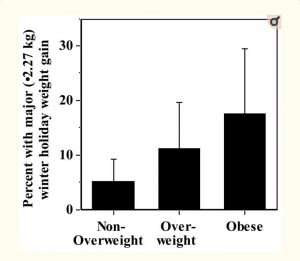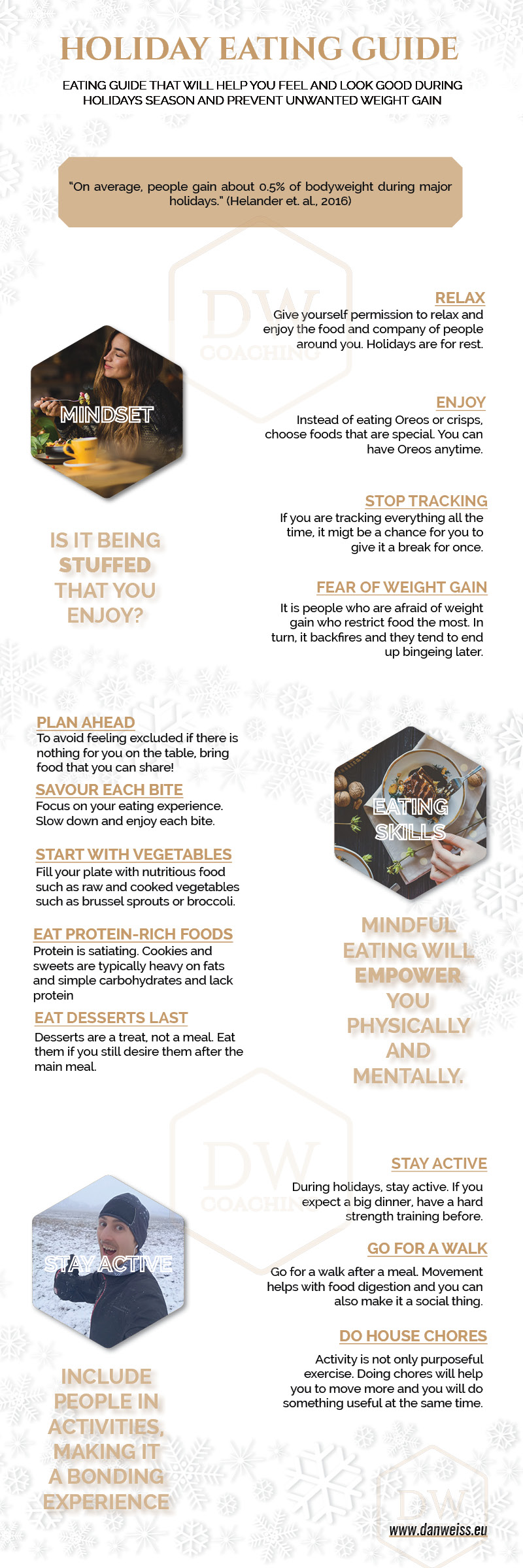Statistics show that during winter holidays we gain weight, which is seldom if ever lost during the rest of the years. While it is not as bad as often portrayed in media, even the 0.5kg of bodyweight gain can be troublesome for a person unsuccessfully trying to lose weight throughout the year.

Why we gain weight during holidays?
Holiday season is typically accompanied by feasts, family dinners and treats. But it does not mean you must eat everything in sight nor avoid all your favourite meals. In fact, you should still enjoy food and avoid weight gain at the same time.
Our habits change:
During holiday season we tend to feast. Our eating habits change and you can even feel compelled and encouraged to overeat.
For example, some people during Thanksgiving dinner eat till they feel sick. According to Calorie Control Council, a typical American Thanksgiving meal is about 3000 kcal! That is the dinner, which does not take into account breakfast and lunch. The whole day can easily add up to 4500kcal.
People often report having to eat certain foods or amounts because they feel obligated to or they don’t want to disappoint coworkers, friends and family memebers.

Typical Thanksgiving Meal
But not all people gain the same amount of weight during holidays (or other eating ocassions). Lean people tend to gain the least amount of weight, if any at all, while already obese population struggles with weight gain the most. I suppose that lean people are more aware of their weight. Lean people have developed habits that allow them to stay lean, just like obese people have habits that cause them to keep the weight on. Besides habits, a lean body can better handle energy overload.

March 23, 2000 N Engl J Med 2000; 342:861-867 DOI: 10.1056/NEJM200003233421206
Environment urges us to eat
Having leftovers around or being at multiple events turns one day of eating into a week, and it becomes that much harder to get back on track. Coworkers bring food to work to share. Feeling compelled to eat not to disappoint others in combination with food being around you all the time makes it easy to overeat.
While one meal will not make you fat (nor thin), the problem is that during the holiday period, we are surrounded by food all the time. This environment encourages eating and snacking, even if you are not hungry. And no day often extends to a week or two.
Our eating habits have changed. No longer we struggle with food availability (in the first world countries). What we normally eat nowadays could be considered a feast years ago… and we feast on top of that.
For example in Japan, KFC successfully ingrained into the society celebrating Christmas with buckets of fried chicken.
Every Christmas season, an estimated 3.6 million Japanese families treat themselves to Kentucky Fried Chicken, in what has become a nationwide tradition.
“This is another sign of globalisation, where consumer rituals spread to other countries and often get translated in different ways,” Rokka says. “It’s not abnormal now to have an Ikea store everywhere in the world. This KFC for Christmas is just taking our consumerism and turning it into a holiday.” (source)
I think that everybody would agree that eating huge amounts of fried food is not good for your health nor body shape.
Instead, take a look at the tips I provided below that will help you to keep in shape or even lose weight during this (and following) holiday season.
Being aware of the problem, there are several ways how you can prevent unwanted weight gain this season.

Can fasting help you to prevent holiday weight gain?
Fasting is a popular strategy among people who want to lose weight. The main reason behind its popularity is its simplicity and application. You either eat or don’t eat, which removes a lot of decision-making eating in moderation can require, especially if you are new to nutrition.
A study from 2019 tested if fasting can help prevent weight gain during the holidays period (November through February). They found that 5:2 fasting regime (5 days eating, 2 days eating circa 780 calories) helped prevent weight gain and participants even lost weight during this period.
However, weight-loss happened in both, non-fasting (-0.4kg) as well as fasting (-1.3kg) group, which suggests that all the participants cared about losing weight. We can see how obese people, just like in this study, start losing weight once they start paying attention to what they eat without doing anything else.
Another concern is that a different study shown that alternate day fasting resulted in weight loss and 1/2 of that lost weight was fat-free mass, while in the group following a continuous energy restriction, almost all weight loss was fat.
My conclusion is that fasting can help you lose weight but I would rather recommend 16:8 schedule or even better, try the strategies mentioned below. Fasting does not need to be the right approach for you. Keep that in mind.
More tips and ideas:
- Some people reduce their food intake during morning and lunch so they can eat more during dinner. If you are trying this strategy for the first time, it can quickly turn against you/ You will feel too hungry and end up eating more than you would normally.
- When visiting family and friends, everybody tends to bring cookies, alcohol and cakes. These foods are typically not very nutritious. How about bringing a side dish such as cucumber,mint & tomato salad?
- If your goal is to keep calories at bay, use low-fat substitutions in baking and cooking. For example instead of peanut butter you can use powdered peanut butter (PB) or flavor drops that are calorie free but deliver the taste.
- Limit your alcohol intake. Liquid calories add up quickly without satisfying your hunger. Alcohol also promotes making wrong decisions and lead to a downward spiral when I drink turns to a bottle.
- Search for fitness friendly recipes. Nowadays, you can find great cakes with rich taste that will not break your calorie budget. Try these chocolate rolls.They are relatively low in calories and full of taste. Using low calorie recipes allows you to pay less attention to food you eat (I still encourage mindful eating).
- Use flavored protein powder as a sweetener in baking and cooking.
- Yet another example of a fit-friendly dessert can be apple galette. it is light as most of it is apples and cinnamon.
Take-home message
While holidays can be troublesome, don’t forget that holidays are just a few days.
Enjoy the social aspect. You can connect with people through activities that don’t involve eating. And if you choose to eat more, don’t worry about it. Just don’t extend one day to a week or longer. You don’t always have to be chasing weight loss.
Much more important is how you eat during the rest of the year.
Take-home message
While holidays can be troublesome, don’t forget that holidays are just a few days.
Enjoy the social aspect. You can connect with people through activities that don’t involve eating. And if you choose to eat more, don’t worry about it. Just don’t extend one day to a week or longer. You don’t always have to be chasing weight loss.
Much more important is how you eat during the rest of the year.

